-
Industrial Bulk Packaging Market, BY Application
-
Overview
-
Flexible Bulk Containers
-
Rigid Bulk Containers
-
Flex tanks
-
Bulk Container Liners
-
Industrial Bulk Packaging Market, BY Technology
-
Overview
-
Chemical & Pharmaceutical
-
Building & Construction
-
Food & Beverage
-
Oil & Lubricant
-
Agriculture & Horticulture
-
Others
-
Industrial Bulk Packaging Market, by Industry vertical
-
Overview
-
Chemical & Petrochemical
-
Oil & Gas
-
Energy & Power
-
Automotive
-
Food & Beverage
-
Healthcare
-
Others
-
Industrial Bulk Packaging Market, by Region
-
Overview
-
North America
-
US
-
Canada
-
Europe
-
Germany
-
France
-
UK
-
Italy
-
Spain
-
Rest of Europe
-
Asia-Pacific
-
China
-
India
-
Japan
-
South Korea
-
Australia
-
Rest of Asia-Pacific
-
Rest of the World
-
Middle East
-
Africa
-
Latin America
-
Competitive Landscape
-
Overview
-
Competitive Analysis
-
Market Share Analysis
-
Major Growth Strategy in the Global Industrial Bulk Packaging Market,
-
Competitive Benchmarking
-
Leading Players in Terms of Number of Developments in the Global Industrial Bulk Packaging Market,
-
Key developments and Growth Strategies
-
New Technology Launch/Service Deployment
-
Merger & Acquisitions
-
Joint Ventures
-
Major Players Financial Matrix
-
Sales & Operating Income, 2022
-
Major Players R&D Expenditure. 2022
-
Company ProfileS
-
My Flexitank Industries Sdn Bhd
-
Company Overview
-
Financial Overview
-
Products Offered
-
Key Developments
-
SWOT Analysis
-
Key Strategies
-
Greif, Inc.
-
Company Overview
-
Financial Overview
-
Products Offered
-
Key Developments
-
SWOT Analysis
-
Key Strategies
-
Shandong Anthente New Materials Technology Co. Ltd
-
Company Overview
-
Financial Overview
-
Products Offered
-
Key Developments
-
SWOT Analysis
-
Key Strategies
-
International Paper Company
-
Company Overview
-
Financial Overview
-
Products Offered
-
Key Developments
-
SWOT Analysis
-
Key Strategies
-
Büscherhoff Spezialverpackung GmbH & Co. KG
-
Company Overview
-
Financial Overview
-
Products Offered
-
Key Developments
-
SWOT Analysis
-
Key Strategies
-
Bulk Lift International, Inc.
-
Company Overview
-
Financial Overview
-
Products Offered
-
Key Developments
-
SWOT Analysis
-
Key Strategies
-
Bemis Company, Inc.
-
Company Overview
-
Financial Overview
-
Products Offered
-
Key Developments
-
SWOT Analysis
-
Key Strategies
-
Environmental Packaging Technologies, Inc.
-
Company Overview
-
Financial Overview
-
Products Offered
-
Key Developments
-
SWOT Analysis
-
Key Strategies
-
Hoover Ferguson Group
-
Company Overview
-
Financial Overview
-
Products Offered
-
Key Developments
-
SWOT Analysis
-
Key Strategies
-
Schuetz GmbH & Co. KGaA
-
Company Overview
-
Financial Overview
-
Products Offered
-
Key Developments
-
SWOT Analysis
-
Key Strategies
-
Appendix
-
References
-
Related Reports
-
LIST OF TABLES
-
Global Industrial Bulk Packaging Market, Synopsis, 2025-2034
-
Global Industrial Bulk Packaging Market, Estimates & Forecast, 2025-2034 (USD BILLION)
-
Industrial Bulk Packaging Market, BY Application, 2025-2034 (USD BILLION)
-
Industrial Bulk Packaging Market, BY Technology, 2025-2034 (USD BILLION)
-
Industrial Bulk Packaging Market, by Industry vertical, 2025-2034 (USD BILLION)
-
North America: Industrial Bulk Packaging Market, BY Application, 2025-2034 (USD BILLION)
-
North America: Industrial Bulk Packaging Market, BY Technology, 2025-2034 (USD BILLION)
-
North america: Industrial Bulk Packaging Market, BY Industry vertical, 2025-2034 (USD BILLION)
-
US: Industrial Bulk Packaging Market, BY Application, 2025-2034 (USD BILLION)
-
US: Industrial Bulk Packaging Market, BY Technology, 2025-2034 (USD BILLION)
-
US: Industrial Bulk Packaging Market, BY Industry vertical, 2025-2034 (USD BILLION)
-
Canada: Industrial Bulk Packaging Market, BY Application, 2025-2034 (USD BILLION)
-
Canada: Industrial Bulk Packaging Market, BY Technology, 2025-2034 (USD BILLION)
-
Canada: Industrial Bulk Packaging Market, BY Industry vertical, 2025-2034 (USD BILLION)
-
Europe: Industrial Bulk Packaging Market, BY Application, 2025-2034 (USD BILLION)
-
Europe: Industrial Bulk Packaging Market, BY Technology, 2025-2034 (USD BILLION)
-
Europe: Industrial Bulk Packaging Market, BY Industry vertical, 2025-2034 (USD BILLION)
-
germany: Industrial Bulk Packaging Market, BY Application, 2025-2034 (USD BILLION)
-
germany: Industrial Bulk Packaging Market, BY Technology, 2025-2034 (USD BILLION)
-
germany: Industrial Bulk Packaging Market, BY Industry vertical, 2025-2034 (USD BILLION)
-
FRANCE: Industrial Bulk Packaging Market, BY Application, 2025-2034 (USD BILLION)
-
FRANCE: Industrial Bulk Packaging Market, BY Technology, 2025-2034 (USD BILLION)
-
France: Industrial Bulk Packaging Market, BY Industry vertical, 2025-2034 (USD BILLION)
-
italy: Industrial Bulk Packaging Market, BY Application, 2025-2034 (USD BILLION)
-
italy: Industrial Bulk Packaging Market, BY Technology, 2025-2034 (USD BILLION)
-
italy: Industrial Bulk Packaging Market, BY Industry vertical, 2025-2034 (USD BILLION)
-
spain: Industrial Bulk Packaging Market, BY Application, 2025-2034 (USD BILLION)
-
spain: Industrial Bulk Packaging Market, BY Technology, 2025-2034 (USD BILLION)
-
spain: Industrial Bulk Packaging Market, BY Industry vertical, 2025-2034 (USD BILLION)
-
UK: Industrial Bulk Packaging Market, BY Application, 2025-2034 (USD BILLION)
-
UK: Industrial Bulk Packaging Market, BY Technology, 2025-2034 (USD BILLION)
-
uk: Industrial Bulk Packaging Market, BY Industry vertical, 2025-2034 (USD BILLION)
-
rest of europe: Industrial Bulk Packaging Market, BY Application, 2025-2034 (USD BILLION)
-
rest of europe: Industrial Bulk Packaging Market, BY Technology, 2025-2034 (USD BILLION)
-
REST OF EUROPE: Industrial Bulk Packaging Market, BY Industry vertical, 2025-2034 (USD BILLION)
-
Asia-Pacific: Industrial Bulk Packaging Market, BY Application, 2025-2034 (USD BILLION)
-
Asia-Pacific: Industrial Bulk Packaging Market, BY Technology, 2025-2034 (USD BILLION)
-
ASIA-PACIFIC: Industrial Bulk Packaging Market, BY Industry vertical, 2025-2034 (USD BILLION)
-
japan: Industrial Bulk Packaging Market, BY Application, 2025-2034 (USD BILLION)
-
japan: Industrial Bulk Packaging Market, BY Technology, 2025-2034 (USD BILLION)
-
japan: Industrial Bulk Packaging Market, BY Industry vertical, 2025-2034 (USD BILLION)
-
china: Industrial Bulk Packaging Market, BY Application, 2025-2034 (USD BILLION)
-
china: Industrial Bulk Packaging Market, BY Technology, 2025-2034 (USD BILLION)
-
china: Industrial Bulk Packaging Market, BY Industry vertical, 2025-2034 (USD BILLION)
-
india: Industrial Bulk Packaging Market, BY Application, 2025-2034 (USD BILLION)
-
india: Industrial Bulk Packaging Market, BY Technology, 2025-2034 (USD BILLION)
-
india: Industrial Bulk Packaging Market, BY Industry vertical, 2025-2034 (USD BILLION)
-
australia: Industrial Bulk Packaging Market, BY Application, 2025-2034 (USD BILLION)
-
australia: Industrial Bulk Packaging Market, BY Technology, 2025-2034 (USD BILLION)
-
australia: Industrial Bulk Packaging Market, BY Industry vertical, 2025-2034 (USD BILLION)
-
south korea: Industrial Bulk Packaging Market, BY Application, 2025-2034 (USD BILLION)
-
south korea: Industrial Bulk Packaging Market, BY Technology, 2025-2034 (USD BILLION)
-
south korea: Industrial Bulk Packaging Market, BY Industry vertical, 2025-2034 (USD BILLION)
-
rest of asia-pacific: Industrial Bulk Packaging Market, BY Application, 2025-2034 (USD BILLION)
-
rest of asia-pacific: Industrial Bulk Packaging Market, BY Technology, 2025-2034 (USD BILLION)
-
REST OF ASIA-PACIFIC: Industrial Bulk Packaging Market, BY Industry vertical, 2025-2034 (USD BILLION)
-
rest of the world: Industrial Bulk Packaging Market, BY Application, 2025-2034 (USD BILLION)
-
rest of the world: Industrial Bulk Packaging Market, BY Technology, 2025-2034 (USD BILLION)
-
REST OF THE WORLD: Industrial Bulk Packaging Market, BY Industry vertical, 2025-2034 (USD BILLION)
-
Middle east: Industrial Bulk Packaging Market, BY Application, 2025-2034 (USD BILLION)
-
Middle east: Industrial Bulk Packaging Market, BY Technology, 2025-2034 (USD BILLION)
-
MIDDLE EAST: Industrial Bulk Packaging Market, BY Industry vertical, 2025-2034 (USD BILLION)
-
Africa: Industrial Bulk Packaging Market, BY Application, 2025-2034 (USD BILLION)
-
Africa: Industrial Bulk Packaging Market, BY Technology, 2025-2034 (USD BILLION)
-
Africa: Industrial Bulk Packaging Market, BY INDUSTRY VERTICAL, 2025-2034 (USD BILLION)
-
Latin america: Industrial Bulk Packaging Market, BY Application, 2025-2034 (USD BILLION)
-
Latin america: Industrial Bulk Packaging Market, BY Technology, 2025-2034 (USD BILLION)
-
LATIN AMERICA: Industrial Bulk Packaging Market, BY INDUSTRY VERTICAL, 2025-2034 (USD BILLION)
-
LIST OF FIGURES
-
Research Process
-
Market Structure for the Global Industrial Bulk Packaging Market
-
Market Dynamics for the Global Industrial Bulk Packaging Market
-
Global Industrial Bulk Packaging Market, Share (%), BY Application, 2021
-
Global Industrial Bulk Packaging Market, Share (%), BY Technology, 2021
-
Global Industrial Bulk Packaging Market, Share (%), BY Industry vertical, 2021
-
Global Industrial Bulk Packaging Market, Share (%), by Region, 2021
-
north AMERICA: INDUSTRIAL BULK PACKAGING MARKET, SHARE (%), BY REGION, 2021
-
Europe: INDUSTRIAL BULK PACKAGING MARKET, SHARE (%), BY REGION, 2021
-
Asia-Pacific: INDUSTRIAL BULK PACKAGING MARKET, SHARE (%), BY REGION, 2021
-
Rest of the world: INDUSTRIAL BULK PACKAGING MARKET, SHARE (%), BY REGION, 2021
-
Global Industrial Bulk Packaging Market: Company Share Analysis, 2021 (%)
-
My Flexitank Industries Sdn Bhd: FINANCIAL OVERVIEW SNAPSHOT
-
My Flexitank Industries Sdn Bhd: SWOT ANALYSIS
-
GREIF, INC.: FINANCIAL OVERVIEW SNAPSHOT
-
GREIF, INC.: SWOT ANALYSIS
-
Shandong Anthente New Materials Technology Co. Ltd: FINANCIAL OVERVIEW SNAPSHOT
-
Shandong Anthente New Materials Technology Co. Ltd: SWOT ANALYSIS
-
International Paper Company: FINANCIAL OVERVIEW SNAPSHOT
-
International Paper Company: SWOT ANALYSIS
-
Büscherhoff Spezialverpackung GmbH & Co. KG: FINANCIAL OVERVIEW SNAPSHOT
-
Büscherhoff Spezialverpackung GmbH & Co. KG: SWOT ANALYSIS
-
Bulk Lift International, Inc.: FINANCIAL OVERVIEW SNAPSHOT
-
Bulk Lift International, Inc.: SWOT ANALYSIS
-
BEMIS COMPANY, INC.: FINANCIAL OVERVIEW SNAPSHOT
-
BEMIS COMPANY, INC.: SWOT ANALYSIS
-
Environmental Packaging Technologies, Inc.: FINANCIAL OVERVIEW SNAPSHOT
-
Environmental Packaging Technologies, Inc.: SWOT ANALYSIS
-
Hoover Ferguson Group: FINANCIAL OVERVIEW SNAPSHOT
-
Hoover Ferguson Group: SWOT ANALYSIS
-
Schuetz GmbH & Co. KGaA: FINANCIAL OVERVIEW SNAPSHOT
-
Schuetz GmbH & Co. KGaA: SWOT ANALYSIS


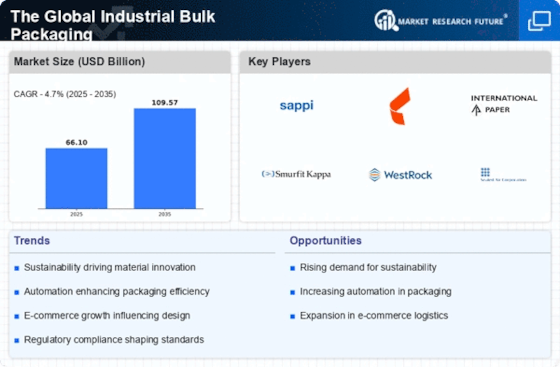
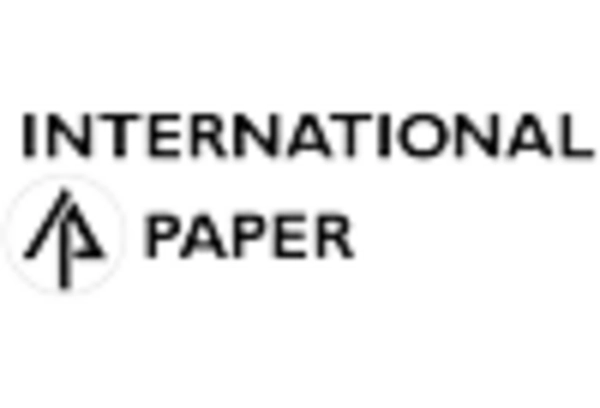
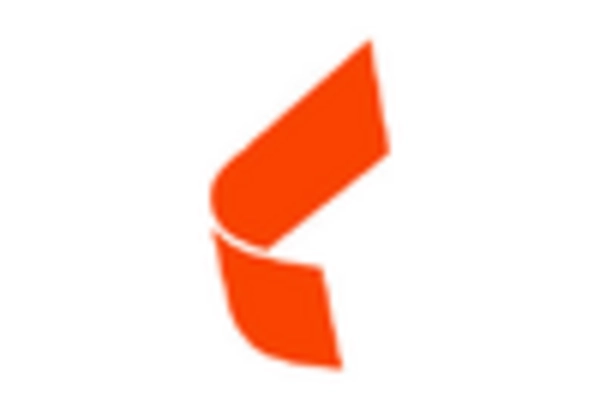
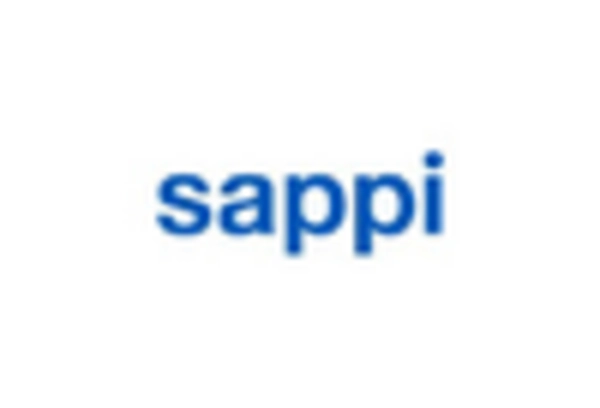
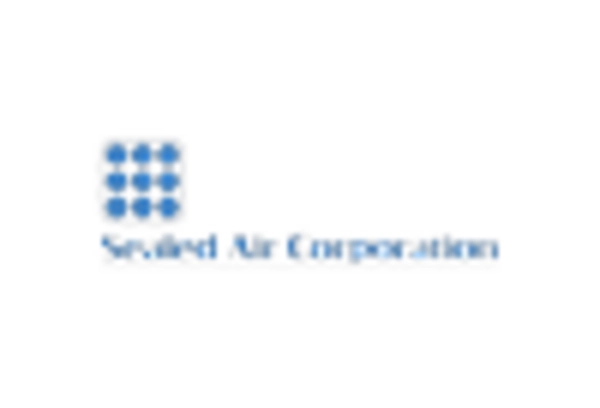
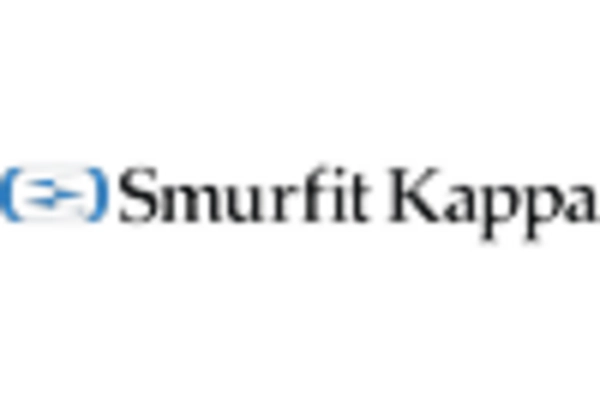
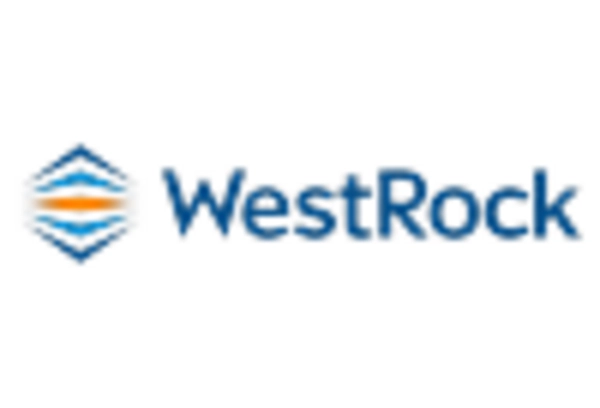










Leave a Comment